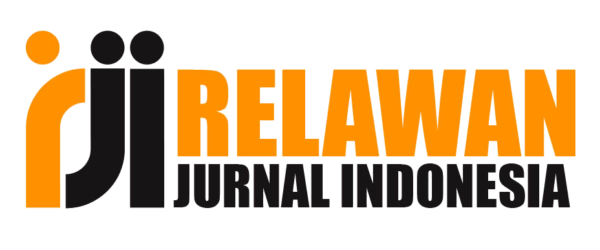Optimizing Physics Learning Based on Solar Panel Projects on Renewable Energy Material to Grow Students' Environmental Awareness
Abstract
Full Text:
PDFReferences
Abbasi, K. R., Shahbaz, M., Zhang, J., Irfan, M., & Alvarado, R. (2022). Analyze the environmental sustainability factors of China: The role of fossil fuel energy and renewable energy. Renewable Energy, 187, 390–402.
Alarfaj, M., Mohamed, S. R., Chtourou, S., Enshasy, H., Aboulnaga, A., & Hassan, M. (2024). Experience of Project-Based Learning: Challenges, Assessment, and Analysis. International Journal of Engineering Pedagogy, 14(3).
Altassan, A. (2023). Sustainable integration of solar energy, behavior change, and recycling practices in educational institutions: a holistic framework for environmental conservation and quality education. Sustainability, 15(20), 15157.
Ariza, J. Á., & Olatunde-Aiyedun, T. G. (2023). Bringing project-based learning into renewable and sustainable energy education: A case study on the development of the electric vehicle EOLO. Sustainability, 15(13), 10275.
Bhuiyan, M. R. A. (2022). Overcome the future environmental challenges through sustainable and renewable energy resources. Micro & Nano Letters, 17(14), 402–416.
Creswell, J. W., & Poth, C. N. (2016). Qualitative inquiry and research design: Choosing among five approaches. Sage publications.
Dunnigan, K. A., Dunford, A., & Bringardner, J. (2020). From cornerstone to capstone: Students’ design thinking and problem solving. ASEE Annual Conference and Exposition, Conference Proceedings, 2020–June. https://doi.org/10.18260/1-2--34693
El-Afifi, M. I. (2024). Solar energy: Our future for sustainable energy. Nile Journal of Communication and Computer Science, 7(1), 67–83.
Elhassan, H. A. M. (2025). Implementation challenges of project based learning during crisis situations: strategies for educational continuity and quality. British Journal of Teacher Education and Pedagogy, 4(1), 1–11.
Falcone, P. M. (2023). Sustainable energy policies in developing countries: a review of challenges and opportunities. Energies, 16(18), 6682.
Franjić, S. (2023). Unleashing Sustainable Energy: The Sun, Earth’s Largest and Most Powerfu Source. Journal of Sustainable Development, 4(2), 1–9.
Hoque, F., Yasin, R. M., & Sopian, K. (2022). Revisiting education for sustainable development: Methods to inspire secondary school students toward renewable energy. Sustainability, 14(14), 8296.
Husna, N. (2024). The Analysis of Magnetic Electricity Physics Teaching Materials Based on Environment in Senior High School. IOP Conference Series: Earth and Environmental Science, 1425(1), 12006.
Junaidi, A., Syahputra, R., & Sinamo, A. (2024). Comprehensive Study of the Potential and Suitability of PLTS as a Renewable Energy Solution in Pelawi Utara Village. Jurnal Komputer Teknologi Informasi Sistem Informasi, 3(2), 836–841.
Luo, W., Pelletier, J., Duffin, K., Ormand, C., Hung, W., Shernoff, D. J., Zhai, X., Iverson, E., Whalley, K., Gallaher, C., & Furness, W. (2018). Advantages of Computer Simulation in Enhancing Students’ Learning About Landform Evolution: A Case Study Using the Grand Canyon. Https://Doi.Org/10.5408/15-080.1. https://doi.org/10.5408/15-080.1
Meng, N., Dong, Y., Roehrs, D., & Luan, L. (2023). Tackle implementation challenges in project-based learning: a survey study of PBL e-learning platforms. Educational Technology Research and Development, 71(3), 1179–1207.
Nuru, J. T., Rhoades, J. L., & Gruber, J. S. (2021). The socio-technical barriers and strategies for overcoming the barriers to deploying solar mini-grids in rural islands: Evidence from Ghana. Technology in Society, 65, 101586.
Obuseh, E., Eyenubo, J., Alele, J., Okpare, A., & Oghogho, I. (2025). A systematic review of barriers to renewable energy integration and adoption. Journal of Asian Energy Studies, 9, 26–45.
OECD. (2017). PISA for Development Assessment and Analytical Framework. In OECD Publishing. https://doi.org/https://doi.org/10.1787/9789264305274-en
Panagoda, L., Sandeepa, R., Perera, W., Sandunika, D. M. I., Siriwardhana, S., Alwis, M., & Dilka, S. H. S. (2023). Advancements in photovoltaic (Pv) technology for solar energy generation. Journal of Research Technology & Engineering, 4(30), 30–72.
Peers, I. (2006). Statistical analysis for education and psychology researchers: Tools for researchers in education and psychology. Routledge.
Purwasih, D., Wilujeng, I., Wiyarsi, A., & Zakwandi, R. (2025). The Socio-Scientific Issue Based on Local Potential in Integrated Learning Instruction to Improve Student Ecological Literacy. Science & Education, 1–24.
Ragustini, Zakwandi, R., Gumilar, T., & Putera, R. F. (2022). The learning design to improve the learning outcomes of students on the topic of electrical circuit. Journal of Teaching and Learning Physics, 7(2), 97–106. https://doi.org/http://dx.doi.org/10.15575/jotalp.v7i2.17773
Ramongalo, K. N. (2024). Creating sustainable physical sciences learning environments through the teaching of renewable energy.
Rufinaldo, R., & Brent, A. (2025). Techno-economic analysis of hybrid wave energy and floating photovoltaic systems in remote islands: A case study in Indonesia. Archives of Sustainable Energy Systems, 1.
Setiono, P., Yuliantini, N., Wurjinem, W., & Anggraini, D. (2021). Kemampuan Argumentasi Ilmiah Mahasiswa Melalui Penerapan Model Pembelajaran Project Based Learning. ELSE (Elementary School Education Journal) : Jurnal Pendidikan Dan Pembelajaran Sekolah Dasar, 5(1), 101. https://doi.org/10.30651/else.v5i1.7039
Sulfiani, B., Riyanto, Y., & Nasution. (2018). The effect of using project based learning towards the collaborative ability and creative thinking skill of class IV. Proceeding of International Conference On Child-Friendly Education, 393–398.
Ukoba, K., Yoro, K. O., Eterigho-Ikelegbe, O., Ibegbulam, C., & Jen, T.-C. (2024). Adaptation of solar energy in the Global South: Prospects, challenges and opportunities. Heliyon, 10(7).
Wilson, K. (2021). Exploring the challenges and enablers of implementing a STEM project-based learning programme in a diverse junior secondary context. International Journal of Science and Mathematics Education, 19(5), 881–897
DOI: https://doi.org/10.17509/wapfi.v10i2.77595
Refbacks
- There are currently no refbacks.
Copyright (c) 2025 WaPFi (Wahana Pendidikan Fisika)

This work is licensed under a Creative Commons Attribution-ShareAlike 4.0 International License.
The Journal Wahana Pendidikan Fisika http://ejournal.upi.edu/index.php/WapFi/ is licensed under a Creative Commons Attribution-ShareAlike 4.0 International License
The Journal WaPFi (Wahana Pendidikan Fisika).
All rights reserverd. pISSN 2338-1027 eISSN 2685-4414
Copyright © Faculty of Mathematics and Science Education (FPMIPA) Universitas Pendidikan Indonesia (UPI)










